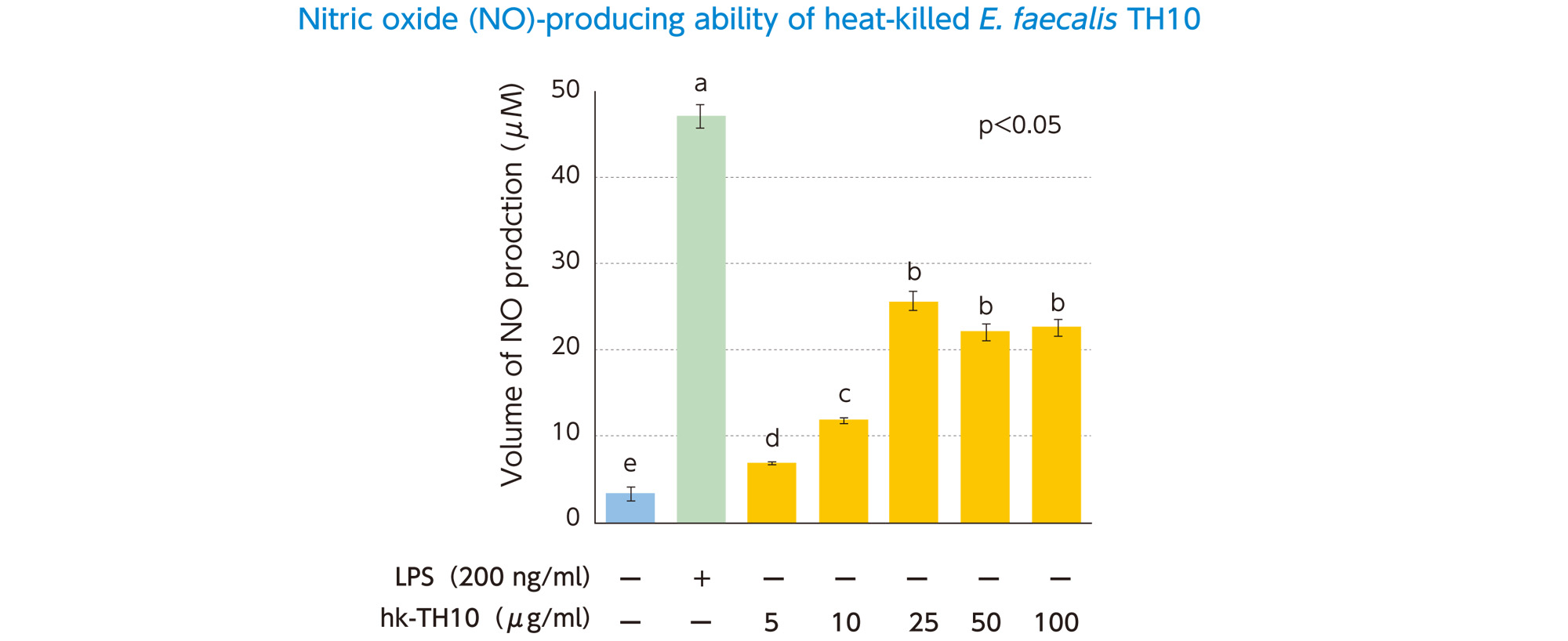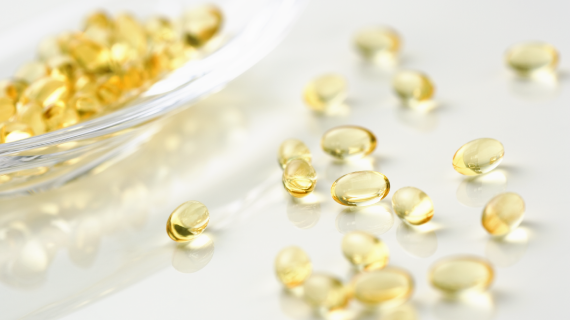Date 2012/01/01
Case:Allergy / Immunity
Immunomodulatory effects of heat-killed Enterococcus faecalis TH10 on murine macrophage cells
MicrobiologyOpen. 1, 373-380 (2012)
The results of our collaborative research with the
Department of Fisheries, Faculty of Agriculture at Kinki University have been
published in the MicrobiologyOpen.
【Objective】
We
examined the immunomodulatory effect of heat-killed Enterococcus faecalis TH10
(hk-TH10) on murine macrophage RAW264 cells.
【Methods】
We
measured the amount of nitric oxide (NO) produced from a cell in order to
examine the macrophage activity which is an index of activation of the innate
immune system. We utilized Toll-like receptors (TLRs) which were knocked down
by small interfering RNA (siRNA) in order to determine the pathway in cells
where hk-TH10 stimulates macrophage activity.
【Results】
When
we set lipopolysaccharides (LPS) which are known to be an enhancer of NO
production in cells as a positive control, hk-TH10 stimulated NO production up
to a level that is almost half of what LPS does. LPS is a strong enhancer.
Therefore, we consider that hk-TH10 has a moderate macrophage activation
potency.
According to the result from
the experiment using siRNA, macrophage RAW264 cells recognized the passage of
hk-TH10 through TLR-2 and TLR-6 pathways, and hk-TH10 stimulated NO production
via the activation of NF-kB.














